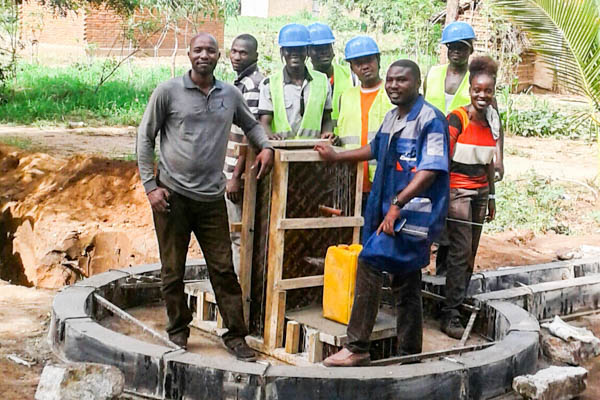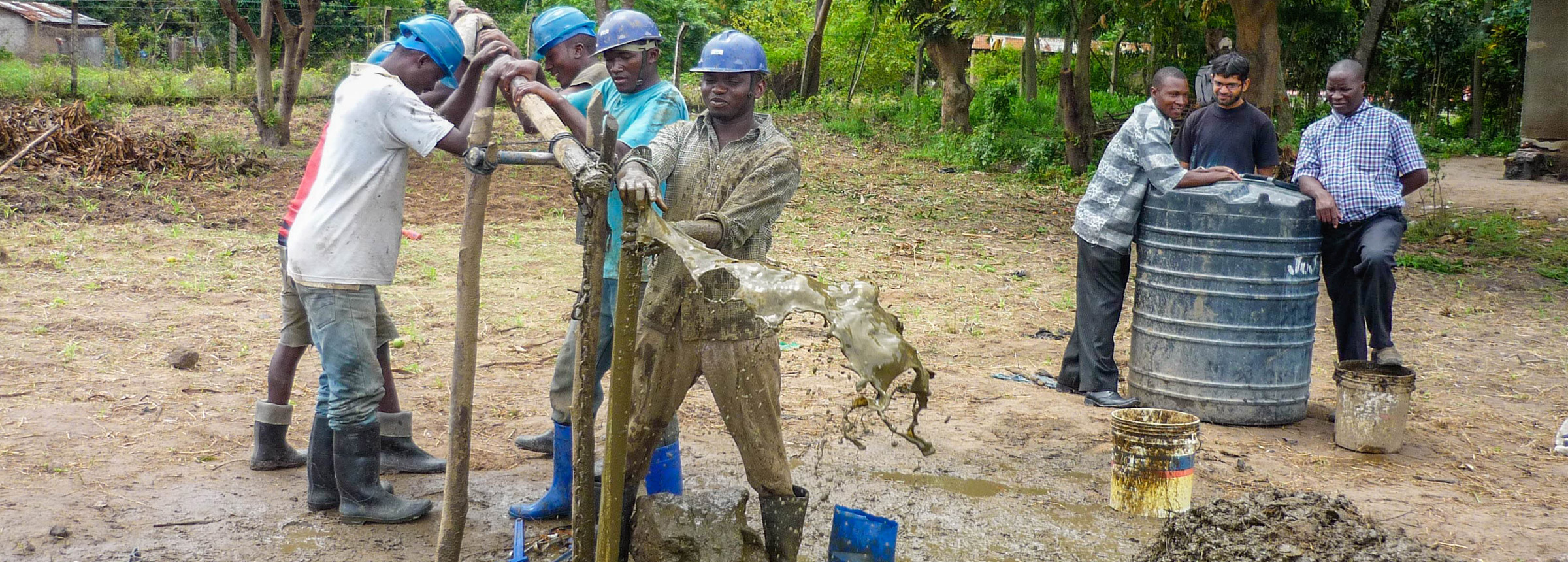
Changing the Face of Clean Water Supply in Tanzania
Jeremy Lakin, Senior Program Associate
 It’s Friday morning in Hembeti, a rural village in eastern Tanzania, and Irene Lemelo is hard at work. Members of the local community update her on their progress digging trenches for water pipes, and Lemelo answers their questions about a gravity-fed water system now under construction. When she finished her engineering degree a year ago, Lemelo never anticipated working with water projects. But after finding an internship with USAID’s Water Resources Integration Development Initiative (WARIDI), she now wants to make water the focus of her professional career.
It’s Friday morning in Hembeti, a rural village in eastern Tanzania, and Irene Lemelo is hard at work. Members of the local community update her on their progress digging trenches for water pipes, and Lemelo answers their questions about a gravity-fed water system now under construction. When she finished her engineering degree a year ago, Lemelo never anticipated working with water projects. But after finding an internship with USAID’s Water Resources Integration Development Initiative (WARIDI), she now wants to make water the focus of her professional career.
Tanzania’s health, economy, and food security depend on sustainably managed water resources. However, water scarcity challenges are growing along with the impacts of climate change and reliable access to safe drinking water and sanitation services remains beyond the reach of many people. WARIDI addresses these challenges by promoting integrated water resources management and service delivery across multiple sectors, which improves governance and increases access to sustainable multi-use water, sanitation, and hygiene services.
The activity is taking on an ambitious effort to deliver sustainable water services to some of Tanzania’s poorest and least accessible villages. By 2021, WARIDI will construct dozens of water systems and train hundreds of local owners to operate them, bringing up to 520,000 people access to basic drinking services. The activity will also reach 750,000 people with improved sanitation services and practices as part of a national behavior change campaign. But that’s not all. WARIDI supports resilient livelihoods and strengthens local water governance in water resources management.
Bringing water directly to these communities promises a significant improvement to the lives of women in the region, many of whom spend each day transporting water from distant water sources. Winrock incorporates that goal into the composition of the WARIDI team.
An untapped resource
Every year, 2,000 students graduate from Tanzanian engineering programs, only to face barriers to employment. To become registered professional engineers in the country, graduates must first gain three years of practical experience. Yet, only an estimated 800 of these students will receive enough training to qualify, the vast majority of whom are men. Recognizing this abundance of unused talent and knowledge, WARIDI bolsters construction efforts with technical expertise while also providing recent engineering graduates an opportunity to build their careers.
Lemelo was one of the first 16 young engineers to be hired as an intern by WARIDI in October 2017. She serves as a site supervisor and a community liaison between local contractors and the communities in which they work. The interns possess both the technical knowledge and linguistic and cultural background to communicate with the community and their local representatives. As a result, the interns prove invaluable in working with communities to design projects that address the community’s unique needs. Through their experience, they are learning to balance water resource sustainability with increasing demands for water-intensive private connections.
Building community relations
Just as one might ask a plumber how they fixed a broken sink, members of the community and their representatives often have questions about the water projects under construction. They might ask about gravity-fed water systems, which use gravity to transport water from a water source at a higher elevation to a tap at a lower elevation. “What is it? How does it work? Why this one? Why do we have to help with the trench excavation? Why do we have to pay water fees? Why is this taking so long?” Lemelo and the other junior engineers’ knowledge enables them to answer questions from the community, helping the community become more self-reliant and able to maintain the systems after WARIDI leaves.
The recent graduates have gained experience that will help their careers, an especially meaningful opportunity for women. While only nine percent of registered engineers in Tanzania are women, twenty-five percent of WARIDI’s original site interns are female. Lemelo is one of four site interns promoted to the position of junior engineer, three of whom are women. The promotion gives junior engineers the opportunity to obtain practical experience while increasing their responsibilities in system design, construction oversight, and community engagement.
The next generation of engineers
“These were things I only knew theoretically,” says Grace Mujuni, one of the other four junior engineers. Mujuni studied environmental engineering and knew she wanted to work in the water sector. “Water is tangible for everyone,” she says, “It affects everyone directly.” Before joining WARIDI, she had been volunteering her skills with non-governmental organizations to gain work experience. Now she’s designing cost-effective water supply systems and is on track to register as a professional engineer with Tanzania’s engineering registration board.
While developing technical expertise has been crucial, the junior engineers say the opportunity to engage with communities has been the most meaningful experience from working with WARIDI. “It contributes to the sustainability when you engage the community and create ownership of the project,” says junior engineer Allen Masasi. His experience has also convinced Masasi of the importance of gender integration in such projects. “When you specifically include women in different levels of decision-making, it makes the project more sustainable.”
This blog was originally published by USAID Tanzania
Related Projects

